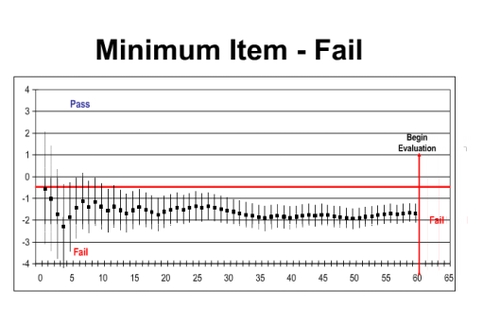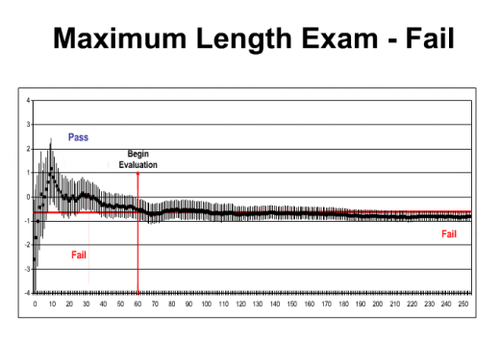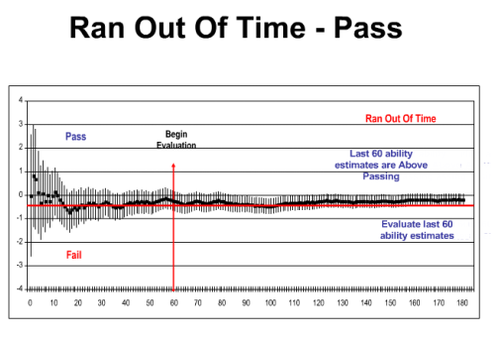- Community
-
Programs
- Schools
-
Careers
- RN Specialties
- Best RN Jobs and Salaries
- Aesthetic Nurse
- Nursing Informatics
- Nurse Case Manager
- NICU Nurse
- Forensic Nurse
- Labor and Delivery Nurse
- Psychiatric Nurse
- Pediatric Nurse
- Travel Nurse
- Telemetry Nurse
- Dermatology Nurse
- Nurse Practitioner
- Best NP Jobs and Salaries
- Family NP (FNP)
- Pediatric NP
- Neonatal NP
- Oncology NP
- Acute Care NP
- Aesthetic NP
- Women's Health NP
- Adult-Gerontology NP
- Orthopedic NP
- Emergency NP
- Psychiatric-Mental Health NP (PMHNP)
- APRN
- Nurse Educator
- Nurse Administrator
- Certified Nurse Midwife (CNM)
- Clinical Nurse Specialist (CNS)
- Certified Registered Nurse Anesthetist (CRNA)
- Resources
- Education




rafiki121
44 Posts
Hey guys, so i have this theory which makes sense to me. Please tell me i'm just crazy. So when you get more then 75 questions it means you are borderline and the computer doesn't know if you know your stuff enough. Right? Now say you're at 100 and you know the 100th question you got was correct for a fact. Now the computer shuts off, that should i only mean you passed right? Why else would they shut it off. So now lets say you got that wrong wouldn't it mean that you failed? Because if you got #99 right why would they give you an extra question and if you got that extra question wrong, turn it off. Makes no sense. It must mean that you got #99 wrong they gave you another question and since you got 100th wrong then they shut you off. Well for me i got up to 155ish and i got that question wrong and it shut off. Please tell me i'm over thinking this.
Thank you